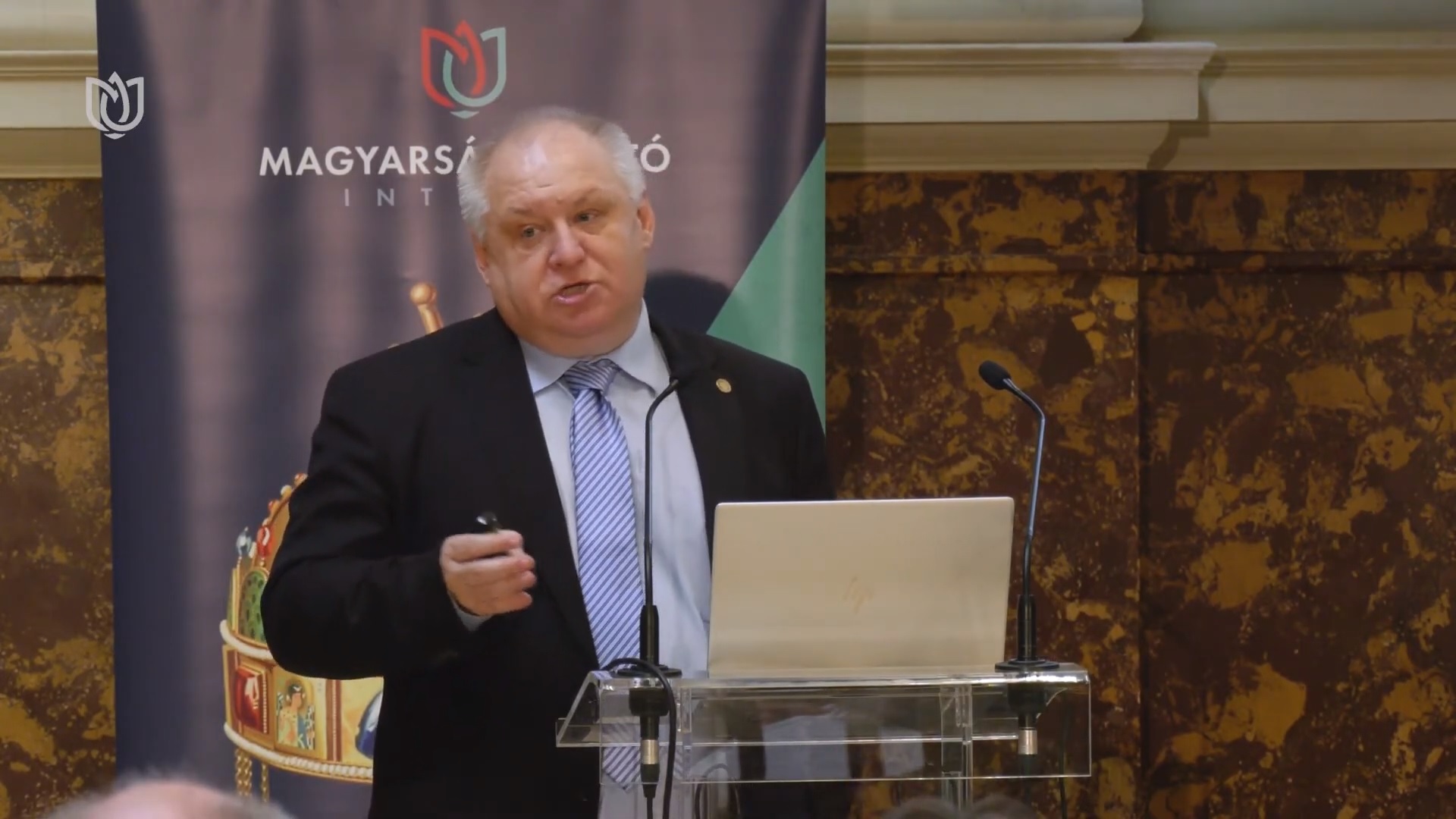Orbán: government will appoint people with "national worldview" to lead Hungarian universities
- Stay updated on the latest news from Hungary by signing up for the free InsightHungary newsletter:
Prime Minister Viktor Orbán in a radio interview Friday acknowledged that the selection of members for boards of trustees that will oversee the operation of most of Hungary's public universities is based at least in part on ideological criteria.
"When we set up these foundations and appoint the boards of trustees, we will be appointing people...who have a national worldview," Orbán said. "That is why I cannot in good conscience recommend anyone to such a board of trustees who is an internationalist, globalist person, because they would take the universities in that direction."
Concerns over academic freedom and the management of public funds were reinvigorated last week when Hungary's parliament passed a law placing 11 universities under the control of what the government calls "public trust foundations," and granted some of them endowments worth billions of euros in state assets.
The move was seen by critics as an attempt by Prime Minister Viktor Orbán and his Fidesz party to consolidate control over Hungary's higher education and cultural institutions, and to make much of the state's valuable assets available to Fidesz loyalists even if the party loses competitive elections next year.
The boards that will lead the foundations are largely composed of former or current ministers, state secretaries and lawmakers from the governing party, leading to criticism that the revamp of the higher education system was an attempt to bring universities under ideological control.
This week, six opposition parties filed a joint complaint with the Constitutional Court over a law, arguing it was an attempt by Fidesz to "preserve money and power."
In response, Orbán said "the left wing is an internationalist formation in Hungary, but the universities are national institutions...So it is very right and good that now when we have a national government, we are putting our universities on a predictable path in the long run, because that is how they remain in the sphere of national interest and national thought."
Fidesz members don't attend committee meeting on Fudan University
Fidesz members of the Hungarian parliament's National Security Committee did not attend a committee session on Tuesday which would have held hearings on an ownership dispute of the steelworks Dunaferr, an alleged cyber attack last week on the government's Covid-19 vaccination page, and the establishment of a campus of the Shanghai-based Fudan University in Budapest.
The Fidesz committee members, including committee chairman János Halász, referred to "official obligations" in justifying their absence. The session did not reach quorum, and the hearings were cancelled.
Committee member Péter Ungár (LMP) said following the cancelled session that Innovation and Technology Minister László Palkovics had been summoned to the hearing to be questioned on the establishment of Fudan University, but the government indicated he would not attend and did not offer a deputy to replace him.
Critics of the plan to bring the prestigious university to Budapest, which will be undertaken at Hungarian taxpayer expense and cost at least €1.5 billion, have argued that the campus could represent a national security risk and lead to increased espionage activities in Hungary.
The university will be placed under the control of a quasi-private foundation, similarly to nearly a dozen other universities after a sweeping law on higher education was passed last week. The foundation will own the university campus and all its facilities, as well as the 26 hectare area where the campus will be built.
Budapest mayor Gergely Karácsony and 9th district mayor Krisztina Baranyi have opposed the construction of the campus in Budapest, arguing the government intends to build it on the site of a planned "Student City" on the east bank of the Danube River which would provide accommodations for 8,000 Hungarian university students. The opposition politicians say they will launch a referendum to block construction of the campus.
Jourová says European Commission unable to intervene in Hungary's pro-government media conglomerate
The European Commission is unable to intervene in the case of a large pro-government media conglomerate in Hungary because European competition law deals only with larger mergers, vice-president of the European Commission Vera Jourová told Euronews on Monday.
The Commission launched a competition investigation in 2019 after hundreds of Hungary's pro-government outlets were donated by their owners to the Central European Press and Media Foundation (KESMA), a conglomerate managed by Fidesz allies. The nearly 500 outlets take in around 40 percent of news media revenues in Hungary, according to Mérték Media Monitor.
Hungary's competition authority launched an investigation into the merger, but Prime Minister Viktor Orbán designated KESMA to be “of national strategic importance,” exempting it from competition review. According to Jourová, that designation made it more difficult for the Commission to take steps on KESMA's compliance with competition rules.
“This frustration that we can not do anything through competition rules leads us [to] think about better rules,” Jourova said.
Reacting to the statements, Justice Minister Judit Varga posted on Twitter that Jourová "would have the appetite to punish Hungary but rules don't let them do it. So 'sad' rules prevent politically-driven acts by Eurocrats."
The European Commission has been investigating another complaint filed in 2016 on the funding of Hungary's public broadcast media, but has not yet reached a conclusion in the case.
Professor fired over racist, sexist comments
László Gulyás, a historian and professor at the Szeged University of Sciences, has been fired over racist, sexist and homophobic comments he made during an online lecture in February, according to media reports.
The university issued a brief statement Tuesday saying it had completed an investigation into the incident after numerous students complained about offensive comments made during the first lecture of Gulyás' course "Migration and Asylum in the 20th Century." The university did not state explicitly that it had fired Gulyás, but members of the parliamentary Cultural Committee confirmed that his termination had been initiated.
As we reported earlier, Gulyás made racist comments alluding to his hatred of "Gypsies," said there is "no such thing as African civilization," used racial slurs to refer to Africans, called US president Joe Biden a "half-wit" and referred to vice president Kamala Harris as a "black slut."

Gulyás serves in an advisory post at the Magyarságkutató Intézet, a research institute set up by the government to explore theories of the ancient origins of the Hungarian nation. According to Népszava, the institute will terminate its connection with Gulyás as well.
Only days before his comments were reported in the media, Gulyás received the Knight’s Civilian Cross of the Order of Merit, one of Hungary's highest state honors. Independent MP Bernadett Szél pushed for the honor to be revoked in light of the comments, but said that governing party members of the Justice Committee had abstained from voting on the measure.
President János Áder, who awarded Gulyás with the state honor, earlier denounced his comments, as did the prime minister's chief of staff Gergely Gulyás.



